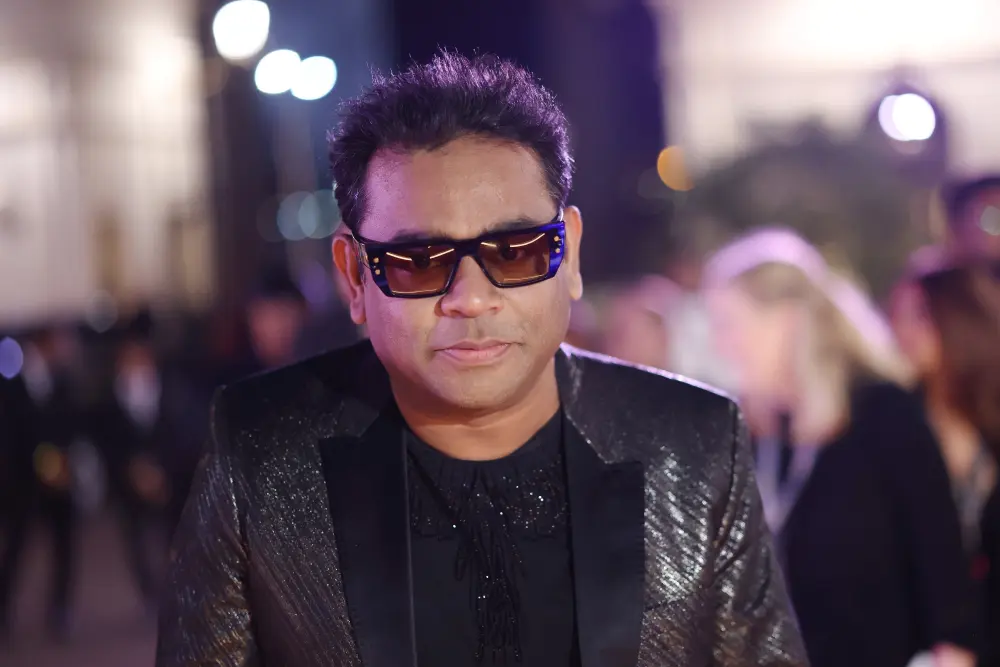Double Oscar-winning composer A.R. Rahman has music projects in every corner of the world. But none is bigger than his long-term plan to build a better India through culture.
Rahman (“Slumdog Millionaire”) lifted the veil on his nation-building exercise and some of his immediate projects at a masterclass at the Internation Film Festival of India, in Goa, where he was interviewed by Variety’s Naman Ramachandran and introduced by filmmaker and festival director Shekhar Kapur.
The session was ostensibly held to honor the late playback singer Lata Mangeshkar, who died in 2022. But the scene for a wider-ranging session was set when the “Elizabeth” director said that for all his musical genius Rahman is also “an entrepreneur, a technologist and a spiritualist.”
The session got under way with a clip from “Headhunting to Beatboxing,” a documentary film that Rahman produced set in and about Nagaland, a part of India once considered to be wild frontier territory.
“Nagaland had a violent past. People there found a reason to make peace,” Rahman explained when for the reasons for his involvement. “Nagaland has a minster for music.”
Popular on Variety The conversation swirled repeatedly into discussion of musical theater, which was the central topic of the masterclass, and Rahman’s plans to build physical infrastructure of a quality that matches his ambitions.
“When we think of musical theater we think of London or New York [and] watching the ‘Lion King’ or ‘West Side Story.’ Who comes here?,” Rahman said. “Musical theatre is valued higher than movies. Top actors [who can earn millions elsewhere] come and perform on [the Broadway or West End] stage for a time. That’s the change I want to see here in musical theatre.”
Although music is a central part of daily life in India, Rahman was critical of the amount of development and modernization in music, and the arts generally. He suggested that India, despite icons like Mangeshkar, has not always achieved world standards. “We did not nurture modern culture,” he said.
“Instead of regarding ourselves as inferior, we should be celebrating.”
Infrastructure building is a priority in Rahman’s mind, explain that India has too much “outdated stuff.” “Look at the Sphere in Las Vegas where thousands of people are enjoying and watching together [technologically sophisticated shows].”
Rahman hopes to soon announce details of one such theater in his Chennai hometown that could start construction within the next two years.
And for any politicians listening, Rahman connected the dots. “One musical theater is not enough. This is also about jobs, national unity, pride.” He has related aspirations in urban planning and architecture.
Quizzed about technology and his “Le Musk” virtual reality show, which has touched down in Cannes, Los Angeles and Toronto, but not yet been brought to India, he framed his response in bigger terms. “We said let it be in English, but let it come from India to the world.”
On artificial intelligence and music, he said, “My dream is to empower people without tools. Then we can change Inda. Give it to the kids and let them change the world.”
But for all the aspirational and inspirational talk, Rahman also touched on some of his own weaknesses and uncertainties. “We all have depression, a void in us. This can be filled by music,” he said. “Don’t cave in to your carnal needs – violence and sex.”
To one audience member who asked for advice, he intoned: “The magic of life is to know yourself. Practice and raise your level.”
At another point, Rahman explained how he’d learned to push back against some of his inner demons and the over exposure that comes with having been on TV since he was 13 years old.
“I’m an introvert. [I kept asking myself] why would people watch me. [The answer is to] make it exciting. My music is celebrating India.”

 Italian
Italian







